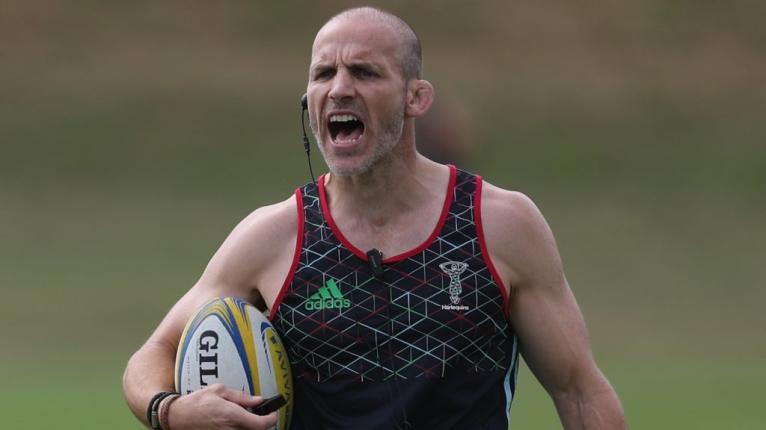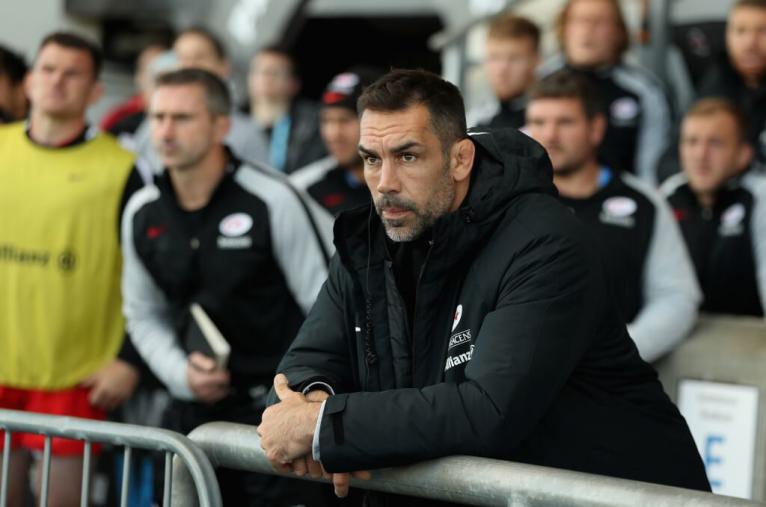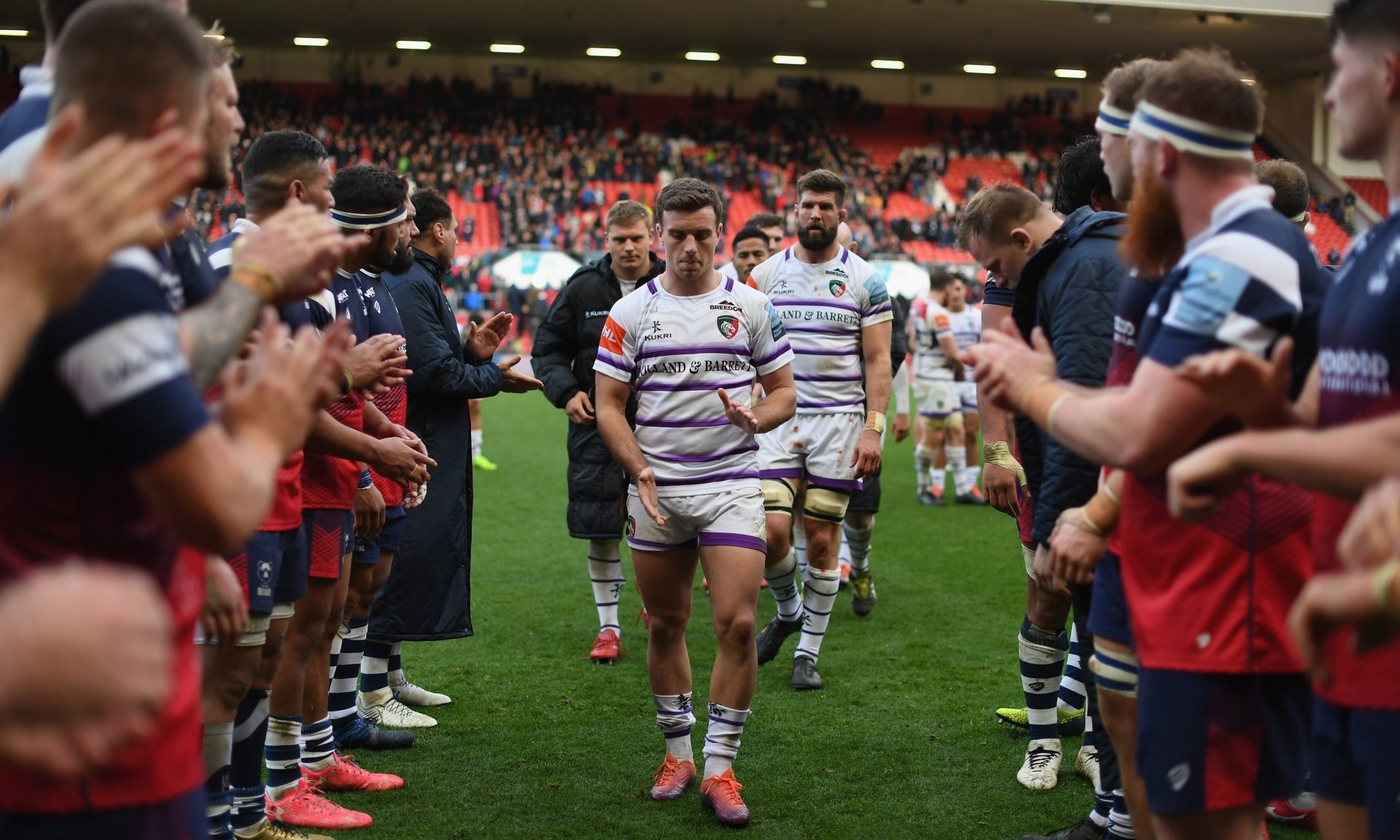Leicester Tigers lack identity but there is a man who could give it to them

Stuart Lancaster to Bath?
Ok, that makes sense, if he could be persuaded to leave Leinster. Ex-Yorkshire Carnegie player Stuart Hooper is set to become Director of Rugby and ex-Yorkshire Carnegie academy manager Andy Rock is set to be promoted to Performance Director. Adding Lancaster to that mix gives you a very adept coach and someone that is likely to be singing from the hymn sheet as those two members of the Bath hierarchy.
He has certainly added to the clinical attacking game of Leinster, helping them build a ruthless identity over the last couple of years. He has experience coaching at the very highest level with England and has a good track record developing talent, both as a performance coach and in his previous role of Head of Elite Player Development at the RFU.
Paul Gustard to Leicester Tigers?
Well, it’s unlikely to happen unless Tigers genuinely do write Quins and Gustard two blank cheques, but you can understand Leicester’s interest. Gustard is an ex-Tiger who knows and understands the club, how it operates and the passion that the fans have for the side.
Like Lancaster, he has experience coaching at the international level and the uncompromising defensive identity that he helped instil at Saracens, and is now beginning to develop with Harlequins, is one that Leicester are in dire need of. They have a soft underbelly that continues to be exposed at Gallagher Premiership and European levels and if there is one thing that you can say with certainty about any Gustard-coached side, it’s that they don’t have soft underbellies.
Warren Gatland to England? Steve Hansen to England?!
Again, two proven performers at the highest level of coaching, with Gatland having frequently had Wales punching above their weight when you take into consideration the resources and player pool at the WRU’s disposal, not to mention an abundance of success with the British and Irish Lions, whilst Hansen has moulded an All Blacks side that have been dominant in international rugby for most of his tenure, including winning two Rugby World Cups whilst he has been in the set-up.
Continue reading below…
Watch: Exceptional Stories: Ian McKinley
Finding the right coach is half the battle.
If you look again at Leicester, they have been the perfect example of a team that’s been held back by coaches that didn’t necessarily ‘fit’ and, as a result, the club has stagnated on the pitch.
Under Richard Cockerill, they had a hard edge and a man that understood what was in the DNA of the club, and what the fans would expect from the side every time that they took to the pitch. As Saracens continued their dominance and both Exeter Chiefs and Wasps began to rise, Leicester’s results under Cockerill began to tail off and ultimately the decision was made to part ways with the long-serving director of rugby and Aaron Mauger took interim charge.
Mauger didn’t last long. He was made interim head coach in January of 2017 but was gone by March, as the club brought in Matt O’Connor. Whether the club didn’t feel Mauger was the right fit, that he wasn’t ready for the position or simply that O’Connor would be a better hire, it hasn’t stopped Mauger finding a head coaching gig with the Highlanders and establishing his identity there.
O’Connor managed to see out the entire 2017/18 season with the club but was then let go just one match into the 2018/19 season, with Geordan Murphy the current interim head coach. He’s already outlasted Mauger in that role, so that’s something.
It comes back to identity, though. If you had a gun to your head right now and were asked what are Leicester Tigers, what traits embody a Leicester player and what is the primary way they go about winning a rugby match, could you honestly give an accurate response?
If there is an answer, it’s far from clear.
The physicality of Cockerill’s reign seems to have been eroded and the leftovers from the tenures of Mauger and O’Connor seem to simply be one of a team that doesn’t really know what it is. At a push, they currently look a bit like Wasps, in that they’re a team whose defence is porous and that if they want to win games, it’s a case of having to score more points and, more often than not, more tries than their opponents.
Putting aside the defensive issues for a second, Tigers averaged over 42 points per game in Murphy’s first three matches in charge and you thought that maybe this was a viable approach, but the points have not come as easily since. Only their 45-27 win over the Scarlets in October has seen them pass that number since and they are currently on an 8-match losing streak that has seen them average 16.4 points scored per game and whopping 31.5 points conceded per game.

That reported interest in Gustard makes sense now, right? Regardless of how realistic of a proposition that is, the club are actively looking for a defence coach, so they will be hoping they can bring someone in and try to move out of the relegation battle in the new year, but it still leaves plenty of questions in the air about the Tigers’ identity moving forward.
Every Premiership side that is currently competing at the top of the table, or has in recent seasons, has, in their development, committed to a preferred style of rugby.
Saracens built their side on a formidable defence and unrelenting pack. That is how they got to the top and since being there, they have diversified and become one of the most versatile and clinical attacking sides in European rugby. They can concede three or four tries in a game and still easily outscore opponents.
Where would Exeter be without that iconic driving maul of theirs? It was borderline unplayable for over a season and then they, like Saracens, have developed into a more multi-faceted side to stay relevant at the top and see off the challenges of sides who game-planned to negate that formidable lineout foundation.
Even Wasps, who have not quite risen to the heights of Saracens or Exeter, developed an identity of high-tempo rugby that would stretch defences, create mismatches and had a capability to score regularly from distance that was unmatched in Europe at the time. Unfortunately for Wasps, that has diminished of late and they haven’t been able to broaden their portfolio in the same way Saracens or Exeter have, but it brought them very close to success. It was a solid building block before recruitment and player retention issues and decisions cost the club.
Now, if you look at two of the more prominent risers this season, Gloucester and Harlequins, they are rapidly developing their own identities under Johan Ackermann and Gustard respectively. Ackermann is bringing plenty of the elements shown by his successful Lions side in Super Rugby to Kingsholm, with arguably a tad more restraint as you would expect in the Premiership, whilst the improvements in line-speed, defensive decision-making and set-piece efficiency at Quins have all the hallmarks of Saracens a few years ago.
The question for Leicester is, what do you want to be and how do you plan on getting there?
There is no overnight fix, Saracens and Exeter are just too good relative to the rest of the Premiership at the moment. You could recruit excellently for a couple of seasons, retain all your key players and transition a number of the very promising youngsters in the club’s academy to the seniors and probably still be playing catch up. It’s a long-term project and they need to commit to the right person, or they risk wasted years and regressions, just as the last two seasons have proven to be.
One name that is rarely mentioned in terms of these vacancies but who could well warrant a blank cheque is Saracens’ Alex Sanderson.

Whilst the likes of Andy Farrell and Gustard have gone on to enjoy international roles, Sanderson has stayed at Saracens, taking on both forwards and defence roles, and evolved into one of the most effective and highly-respected coaches in the English game. He has taken those traditionally strong areas of Saracens and added his own touches, whilst also having to compensate for the more offensively-gifted playing squad, that is given perhaps a little more freedom on the pitch than they were during Gustard’s or Farrell’s time at the club.
He is a performance coach, but one who has a knack for developing players. Maro Itoje and Nick Isiekwe are two of the best lineout forwards in world rugby, let alone the Premiership, and both have continued to develop as players once breaking through into the regular senior side. There is clearly not just a focus on preparing players to be at their best for the 80 minutes at the weekend, there is an active goal of improving players over the long-term to make the team better overall, rather than just to deal with the challenge of an upcoming opponent.
The list doesn’t end with those two, either, with Jamie George, Mako Vunipola, Joel Kpoku, George Kruis, Billy Vunipola, Ben Earl, Jackson Wray and a host of others having benefitted from working with Sanderson.
Saracens can offer Sanderson financial security, a realistic shot at multiple trophies each season and a working environment that allows him to thrive, but the one thing they can’t offer him is the top job, with Mark McCall the incumbent director of rugby. Given McCall’s record of success, what motivation would there be for the Saracens board to move in a different direction?
Sanderson signed a contract extension with Saracens earlier this year but if a club, such as Leicester, is keen to find a director of rugby or a head of rugby who can implement a philosophy, coach as well as anyone and establish an identity which can be built around for years to come, then maybe Sanderson is the man they need to get on the phone.
Watch: Alex Sanderson talks to RugbyPass in preseason about the reasons the club couldn’t bring back Chris Ashton.










































































